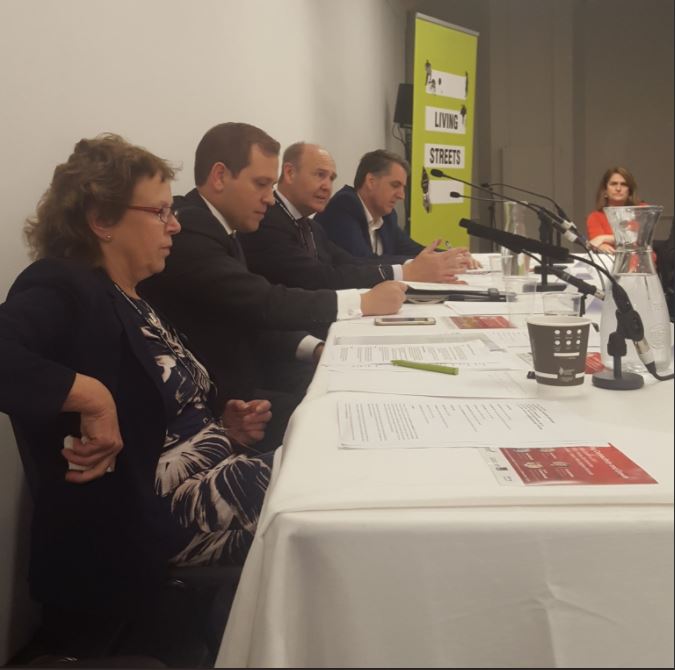
“If devolution is a journey, the current deals are not the destination”, was an underlying theme in the discussion at the City-REDI sponsored the Labour Party Conference fringe event on connectivity and growth (organised by Devo Connect). The current approach of making cities and (as Sir John Peace pointed out) other areas compete for limited resources, creates an uneven and patchy approach to connectivity. In transport terms, this produces disjointed investment approaches and lack of systematic and strategic investment.
As Cllr Judith Blake from Leeds pointed out, there are a group of emerging strategic bodies that will potentially have oversight of connectivity and could, therefore, play a key role in transport. Despite not having a Mayor, there is a need for strong local leadership in linking disparate funding streams into one cohesive approach, bringing together investment in transport hubs with local plans, to create spaces which encourage culture change in how we access jobs, entertainment and homes. The panel focussed on the need to go to government with ‘big ticket’ asks that drive large investments and galvanise local action. As part of this, there needs to be a focus on liveability, moving away from car based infrastructure and developing open city spaces that encourage people to walk, moving across cities and make the best use of them. In an age where cities can drive environmental and health concerns such as isolation and mental health problems we need to look at how we create places that encourage integration, and opportunity for community embeddedness, examining how we move around cities not just efficiently but engagingly. The panel all agreed that the @livingstreets approach of creating safe, green spaces was vital to this.
Adam Marshall from the British Chambers of Commerce, chairing the discussion, highlighted the need for cities to lobby government collectively for investment in infrastructure and the importance of making a case for connected approaches. Panellists agreed that investments such as Birmingham Interchange are important across the country, as they leverage change, and make local infrastructure more efficient elsewhere, increasing accessibility across the network. As part of this competitive and divisive approach, HS2 has suffered a serious misbranding failure, where the issue is not about speed but improvements in rolling stock, lines and stations to move more freight, taking it off congested roads and making it fit for the future. At a local level, this improves the whole system but the centrally driven ‘pitch’ of improving speed to London has no resonance or importance to people in the regional towns and cities facing under investment in local transport.
A fun fact from the panel was the obvious, but the little known concept, about the real coverage of the London Underground (a real map can be viewed here). In distance terms, the Central Line travels from Epping to Ealing Broadway a distance of 46 miles with 49 stations. Culturally people think nothing about travelling across London for jobs, entertainment, leisure or visiting friends. We ‘just jump on’ the tube. Manchester to Leeds is 43.5 miles and Manchester to Liverpool 34 miles, yet culturally there is very little movement between these cities. This highlights the importance of cultural connectivity, and how the perception of an integrated single transport system can shape people’s thinking in relation to things like job accessibility. Suddenly the world becomes smaller and options become wider.
If devolution is a process whereby power is transferred, then political connectivity is as vital as transport connectivity. The panellists discussed how we might reframe the current competitive approach to one which ensures inclusivity, and an infrastructure approach which encourages a connected UK. It is vital that places generate mutual and complementary growth, not at the disadvantage of another.
To sign up to our blog mailing list, please click here.
